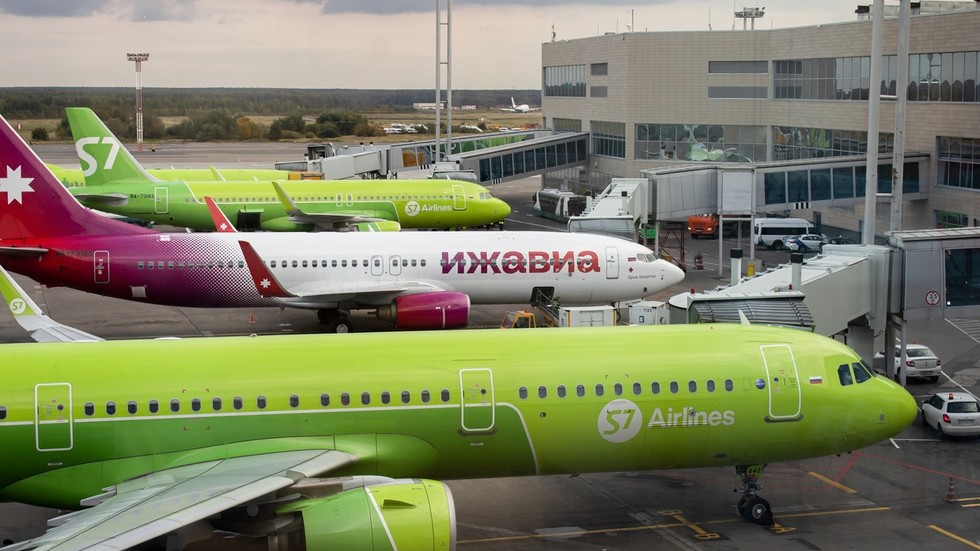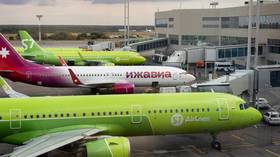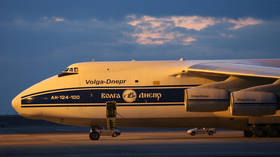
The UN’s civil aviation agency must put an end to restrictions that compromise safety, the Foreign Ministry has said

FILE PHOTO: Aircraft operated by Russian airlines at Domodedovo airport in Moscow © Vlad Karkov / SOPA Images / LightRocket via Getty Images
Russia has filed a formal complaint against the US and its allies over sanctions that undermine Russian participation in international air transportation, the Foreign Ministry has announced.
Moscow is seeking the intervention of the International Civil Aviation Organization (ICAO) against 37 other nations, the ministry said in a statement on Wednesday. The complaint has been sent to the agency’s governing council, which is responsible for its daily operations. The ICAO is the UN agency that oversees flight safety around the world.
Western nations have closed their airspace to Russian flights and have banned the country from buying Western plane parts and services needed to maintain its fleets. Hundreds of Russian planes were seized on foreign soil as a result of the US-led pressure campaign against Moscow, which the Russian government considers illegal.

Read more
The sanctions were imposed due to the Ukraine conflict. Some nations, such as Canada, announced their intention to hand over Russian property to Kiev.
“With their actions, the defendants have put at risk the safety of international civilian aviation and have seriously undermined mutual trust, which has been the basis of the system of international aviation for almost 80 years,” the statement said, apparently referring to the age of the ICAO.
Moscow is seeking an impartial review of its claims under the ICAO’s conflict resolution mechanism. The restrictions violate the 1944 Chicago Convention on International Civil Aviation, the ICAO’s founding document, the Foreign Ministry said.
Russia has become the world’s most sanctioned nation since the US and its allies escalated their restrictions on the country following the launch of its military operation in Ukraine in February 2022. Moscow perceives the sanctions as part of a proxy war to contain Russian development and defend Western hegemony.




